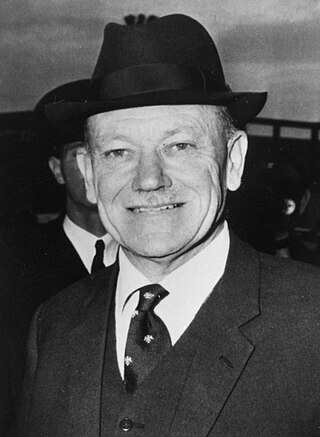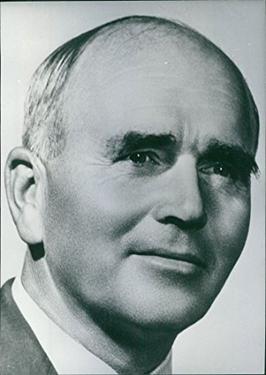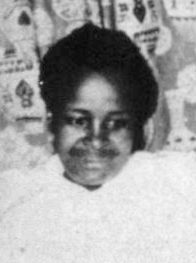
Rhodesia, officially from 1970 the Republic of Rhodesia, was an unrecognised state in Southern Africa from 1965 to 1979, equivalent in territory to modern Zimbabwe. Rhodesia was the de facto successor state to the British colony of Southern Rhodesia, which had been self-governing since achieving responsible government in 1923. A landlocked nation, Rhodesia was bordered by Botswana to the southwest, Mozambique to the east, South Africa to the south, and Zambia to the northwest. From 1965 to 1979, Rhodesia was one of two independent states on the African continent governed by a white minority of European descent and culture, the other being South Africa.

Southern Rhodesia was a landlocked self-governing British Crown colony in southern Africa, established in 1923 and consisting of British South Africa Company (BSAC) territories lying south of the Zambezi River. The region was informally known as south Zambesia until annexed by Britain at the behest of Cecil Rhodes's British South Africa Company, for whom the colony was named. The bounding territories were Bechuanaland (Botswana), Northern Rhodesia (Zambia), Portuguese Mozambique (Mozambique), and the Transvaal Republic.

Rhodesia's Unilateral Declaration of Independence (UDI) was a statement adopted by the Cabinet of Rhodesia on 11 November 1965, announcing that Rhodesia a British territory in southern Africa that had governed itself since 1923, now regarded itself as an independent sovereign state. The culmination of a protracted dispute between the British and Rhodesian governments regarding the terms under which the latter could become fully independent, it was the first unilateral break from the United Kingdom by one of its colonies since the United States Declaration of Independence in 1776. The UK, the Commonwealth, and the United Nations all deemed Rhodesia's UDI illegal, and economic sanctions, the first in the UN's history, were imposed on the breakaway colony. Amid near-complete international isolation, Rhodesia continued as an unrecognised state with the assistance of South Africa and Portugal.

Clifford Walter Dupont was a British-born Rhodesian politician who served in the internationally unrecognised positions of officer administrating the government and president. Born in London and qualifying as a solicitor, Dupont served during the Second World War as an officer of the British Royal Artillery in North Africa before first visiting Southern Rhodesia in 1947. He returned a year later, started a ranch and emigrated full-time during the early 1950s, by which time the country had become a territory of the Federation of Rhodesia and Nyasaland.

Edward Holroyd Pearce, Baron Pearce, was a British barrister and judge. He served as a Lord of Appeal in Ordinary from 1962 until 1969. In 1971–72, he chaired the Pearce Commission, which was charged with testing the acceptability of a proposed constitutional settlement in Rhodesia.
The colonial history of Southern Rhodesia is considered to be a time period from the British government's establishment of the government of Southern Rhodesia on 1 October 1923, to Prime Minister Ian Smith's unilateral declaration of independence in 1965. The territory of 'Southern Rhodesia' was originally referred to as 'South Zambezia' but the name 'Rhodesia' came into use in 1895. The designation 'Southern' was adopted in 1901 and dropped from normal usage in 1964 on the break-up of the Federation of Rhodesia and Nyasaland, and Rhodesia became the name of the country until the creation of Zimbabwe Rhodesia in 1979. Legally, from the British perspective, the name Southern Rhodesia continued to be used until 18 April 1980, when the name Republic of Zimbabwe was formally proclaimed.

A double referendum was held in Rhodesia on 20 June 1969, in which voters were asked whether they were in favour of or against a) the adoption of a republican form of government, and b) the proposals for a new Constitution, as set out in a white paper and published in a Gazette Extraordinary on 21 May 1969. Both proposals were approved. The country was subsequently declared a republic on 2 March 1970.

Desmond William Lardner-Burke was a politician in Rhodesia.
William John Harper was a politician, general contractor and Royal Air Force fighter pilot who served as a Cabinet minister in Rhodesia from 1962 to 1968, and signed that country's Unilateral Declaration of Independence (UDI) from Britain in 1965. Born into a prominent Anglo-Indian merchant family in Calcutta, Harper was educated in India and England and joined the RAF in 1937. He served as an officer throughout the Second World War and saw action as one of "The Few" in the Battle of Britain, during which he was wounded in action. Appalled by Britain's granting of independence to India in 1947, he emigrated to Rhodesia on retiring from the Air Force two years later.

Sir Thomas Hugh William Beadle, was a Rhodesian lawyer, politician and judge who served as Chief Justice of Southern Rhodesia from March 1961 to November 1965, and as Chief Justice of Rhodesia from November 1965 until April 1977. He came to international prominence against the backdrop of Rhodesia's Unilateral Declaration of Independence (UDI) from Britain in November 1965, upon which he initially stood by the British Governor Sir Humphrey Gibbs as an adviser; he then provoked acrimony in British government circles by declaring Ian Smith's post-UDI administration legal in 1968.
Sir John Charles Rowell Fieldsend, QC was a judge who served as the first Chief Justice of Zimbabwe. He also served as a judge in several British overseas territories.

Queen of Rhodesia was the title asserted for Elizabeth II as Rhodesia's constitutional head of state following the country's Unilateral Declaration of Independence from the United Kingdom. However, the position only existed under the Rhodesian constitution of 1965 and remained unrecognised elsewhere in the world. The British government, along with the United Nations and almost all governments, regarded the declaration of independence as an illegal act and nowhere else was the existence of the British monarch having separate status in Rhodesia accepted. With Rhodesia becoming a republic in 1970, the status or existence of the office ceased to be contestable.

Lancelot Bales Smith, was an English-born Rhodesian farmer and politician. Elected to Parliament in the 1950s, he was a founding member of Rhodesian Front in 1962. He was Minister without portfolio in the cabinet of Prime Minister Ian Smith at the time of Rhodesia's Unilateral Declaration of Independence in 1965. In 1968, after serving as Deputy Minister of Agriculture, he was appointed Minister of Internal Affairs, a position he held until 1974, when he exited politics.

The Southern Rhodesia Act 1965 was an act of the Parliament of the United Kingdom. It was designed to reaffirm British legal rule in Southern Rhodesia after Rhodesia had unilaterally declared independence. In practice, it only enforced the status of Southern Rhodesia as a British colony in British constitutional theory as the Rhodesian government did not recognise it.
Bennie GoldinQC was a Byelorussian-born, Zimbabwean lawyer and judge. He was a justice of the Supreme Court of Zimbabwe from 1980 to 1981. Previously, he served on the High Court of Rhodesia from 1964 to 1980. Born in Nesvizh, Byelorussia, he grew up in Cape Town, immigrated to Salisbury after World War II, and later returned in 1981 to Cape Town where he served as a judge in Transkei.
Harry Elinder Davies, QC was a Rhodesian and Zimbabwean lawyer and judge.

Zimbabwean nationality law is regulated by the Constitution of Zimbabwe, as amended; the Citizenship of Zimbabwe Act, and its revisions; and various international agreements to which the country is a signatory. These laws determine who is, or is eligible to be, a Zimbabwean national. The legal means to acquire nationality, formal legal membership in a nation, differ from the domestic relationship of rights and obligations between a national and the nation, known as citizenship. Nationality describes the relationship of an individual to the state under international law, whereas citizenship is the domestic relationship of an individual within the nation. Commonwealth countries often use the terms nationality and citizenship as synonyms, despite their legal distinction and the fact that they are regulated by different governmental administrative bodies. Zimbabwean nationality is typically obtained under the principal of jus sanguinis, i.e. by birth to parents with Zimbabwean nationality. It can be granted to persons with an affiliation to the country, or to a permanent resident who has lived in the country for a given period of time through registration, a process known elsewhere as naturalisation.

Stella Madzimbamuto was a South African-born Zimbabwean nurse and plaintiff in the landmark legal case of Madzimbamuto v Lardner-Burke. Born as Stella Nkolombe in District Six of Cape Town in 1930, she trained as a nurse at South Africa's first hospital to treat black Africans, earning a general nursing and a midwifery certification. After working for three years at Ladysmith Provincial Hospital, she married a Southern Rhodesian and relocated. From 1956 to 1959, she worked as a general nurse at the Harare Central Hospital. In 1959, her husband, Daniel Madzimbamuto, was detained as a political prisoner. He would remain in detention until 1974, while she financially supported the family.

Daniel Nyamayaro Madzimbamuto (1929–1999) was a Southern Rhodesian activist who became a Zimbabwean politician and administrator.













